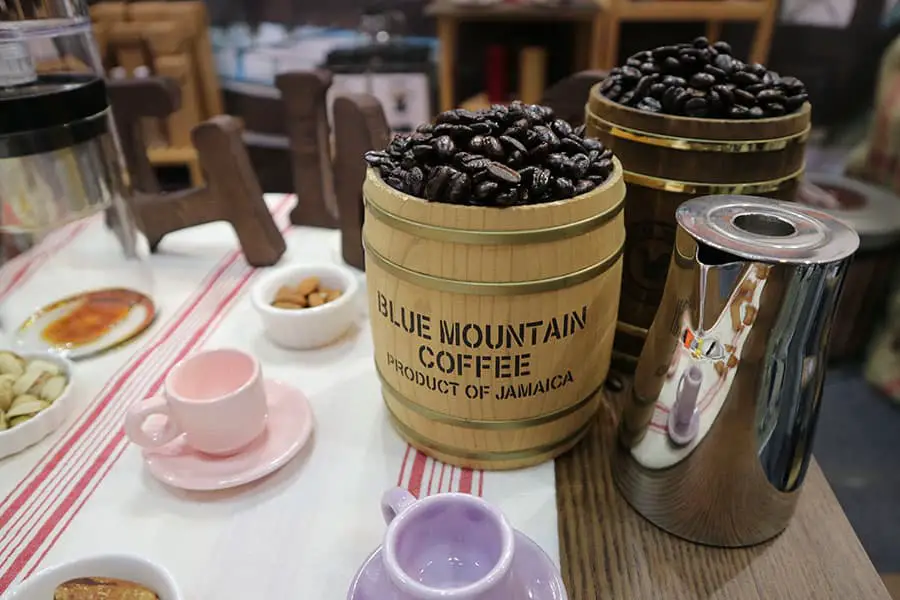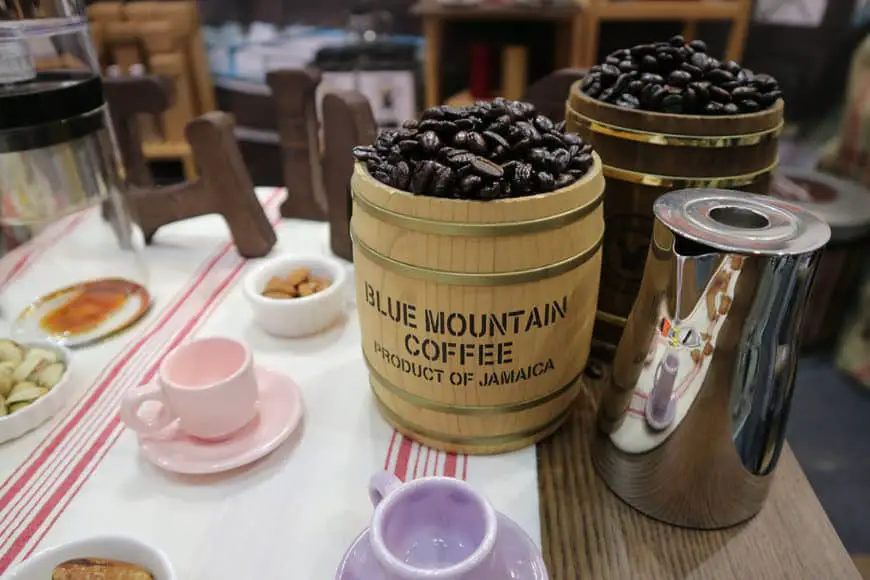
For coffee people who have wandered the streets of Jamaica or scrolled through specialty coffee sites, Jamaican Blue Mountain coffee often sparks a mix of awe and sticker shock. A single cup or a modest bag can feel like a small investment, but the hype is real—this brew is a global icon. Curious about what drives its hefty price tag? Let’s look into the world of Jamaican Blue Mountain coffee and uncover why it’s one of the most expensive and yet coveted coffees out there.
A Tiny Harvest with Global Demand
Jamaican Blue Mountain coffee is produced in remarkably small quantities, making scarcity a key player in its cost. Each year, only about 400 to 1,000 metric tons are exported—a fraction compared to coffee powerhouses like Brazil, which churns out over 2.6 million metric tons annually. To put it in perspective, Jamaica’s output is less than 0.04% of Brazil’s.
Compounding this scarcity, Japan secures roughly 80% of the harvest, drawn by a deep cultural appreciation for its smooth flavor and a trade relationship dating back decades. That leaves a mere 20% for the rest of the world to compete over, driving prices up as coffee lovers clamor for a taste.
The Blue Mountains’ Perfect Recipe
The magic of Jamaican Blue Mountain coffee starts in its birthplace: the misty, rugged Blue Mountains, a UNESCO World Heritage Site. The volcanic soil here is a nutrient goldmine, rich in nitrogen and phosphorus, giving Arabica Typica plants a quality edge. Grown at elevations between 3,000 and 5,500 feet—ideal for Arabica’s delicate nature—the beans thrive in a sweet spot of cool temperatures and steady rainfall, averaging 40 to 60 inches annually.
Cloud cover acts like a natural sunscreen, protecting the plants from intense rays and allowing the beans to mature slowly. This unique combo of altitude, soil, and climate crafts a flavor profile that’s tough to replicate, justifying the premium price. Estates like Wallenford and Clifton Mount, nestled in parishes like Portland and St. Andrew, are renowned for turning these conditions into liquid gold.
Rigorous Standards, Uncompromising Quality
Jamaica takes its coffee seriously, and the rules are strict. Since 1950, regulations have ensured that only the best beans carry the Jamaican Blue Mountain name. The Jamaica Agricultural Commodities Regulatory Authority (JACRA) oversees every step, from planting to export, certifying that coffee comes from the designated parishes of St. Andrew, St. Thomas, Portland, or St. Mary.
Every barrel of green coffee is inspected for size, defects, and quality before it ships. This meticulous process guarantees a consistent experience, whether you’re brewing in Tokyo or Toronto, but it adds costs that show up in the price tag. Coffee grown outside these boundaries? It’s labeled Jamaica High Mountain or Supreme, not Blue Mountain.
The Art of Hand-Picked Harvests
Forget machines—Jamaican Blue Mountain coffee is all about human touch. The Blue Mountains’ steep, terraced slopes are no place for mechanized harvesters. Picture narrow paths and dizzying inclines where skilled farmers climb with baskets, hand-picking only the ripest cherries. Timing is critical: too early, and the flavor’s flat; too late, and it’s overripe.
A single harvest can stretch over days or weeks, with workers returning multiple times to catch cherries at their peak. This labor-intensive process, often supported by sustainable practices to protect the land, racks up costs but delivers beans of unmatched quality. The result is a cup that’s consistently stellar, from the first sip to the last.
A Flavor Worth the Hype
Describing Jamaican Blue Mountain coffee is like trying to capture a melody—it’s an experience. Known for its silky smoothness, this coffee strikes a rare balance: mild yet vibrant, with layers that unfold sip by sip. You might catch delicate floral notes mingling with nutty warmth, a hint of chocolate, and a whisper of spice, all wrapped in a creamy finish.
Its sweetness and bitterness harmonize perfectly, thanks to the slow maturation at high altitudes. Unlike punchier roasts that demand attention, this coffee feels refined yet approachable—a sophisticated treat without pretension. Whether it’s the classic Typica variety or the rounder peaberry beans, the flavor explains why fans empty their wallets for it.
Here’s a quick peek at what makes the taste so special:
| Flavor Note | Description |
|---|---|
| Floral | Subtle hints of jasmine or lavender |
| Nutty | Warm almond or hazelnut undertones |
| Chocolate | Gentle cocoa or dark chocolate vibes |
| Spice | A faint dash of cinnamon or nutmeg |
| Creaminess | Smooth, velvety mouthfeel |
Breaking Down the Cost
So, what’s the damage? A one-pound bag of authentic Jamaican Blue Mountain coffee, good for about 50 to 60 cups, typically runs $50 to $60 from trusted retailers like Volcanica Coffee. K-Cup fans might pay around $124 for 72 pods on Amazon. Spot a deal for $10 or $20 per pound? Tread carefully—it’s likely a blend or counterfeit. Always look for the JACRA seal of authenticity, often printed on packaging or verified by the seller. Prices can creep higher with global shipping costs or climate-driven supply dips, but for now, $50–$60 holds steady for top-grade beans.
| Product | Quantity | Price Range | Source Example |
|---|---|---|---|
| Whole Bean Bag | 1 lb (50–60 cups) | $50–$60 | Volcanica Coffee |
| K-Cups | 72 pods | ~$124 | Amazon |
| Unauthentic “Bargain” | 1 lb | $10–$20 | Unreliable Retailers |
Beyond the Beans: Culture and Costs
The price isn’t just about production—it’s also about prestige. Jamaican Blue Mountain coffee carries a luxury aura, like a fine Bordeaux, which invites premium markups. Events like the Jamaican Blue Mountain Coffee Festival showcase its cultural weight, drawing global fans to celebrate its heritage. Sustainable farming, from shade-grown methods to fair wages for pickers, adds to costs but preserves the land and communities. And let’s not forget import duties or shipping, which can nudge prices up for buyers far from Jamaica’s shores.
Is It Worth It?
Jamaican Blue Mountain coffee isn’t your everyday brew—it’s a splurge, a bucket-list sip for coffee lovers. Its nuanced flavors, born from a rare blend of geography, craftsmanship, and tradition, make it a standout. Not sure where to start? Try brewing it in a pour-over to taste every note, or share a cup with friends to spread the love. One sip, and you might just agree it’s worth every penny.

